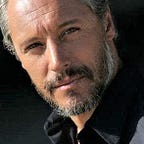My Professional View on Healthy Eating
What’s important and what’s not
As a retired research Biochemist and Molecular Biologist, I’ve spent years training, working long hours, and making decisions that could mean life or death.
In such a demanding field, staying nourished and hydrated is crucial. Here’s my take on how to maintain a healthy diet amidst a hectic lifestyle.
One approach I’ve found effective is intermittent fasting, specifically eating during an eight-hour window and fasting for the remaining 16 hours. However, I understand that this may not work for everyone, and as a fellow researcher, once said, “There isn’t a single, perfect diet for every person. It depends on each person’s dietary objectives.”
He likens our eating habits to a bank account, where nutritious choices build up our balance, allowing us to occasionally indulge without guilt.
When advising others, I emphasize the importance of minimizing processed and sugar-dense foods. A simple rule I follow is to avoid foods with bar codes as much as possible, as these often contain additives and preservatives that can be detrimental to our health. Instead, I encourage consuming whole, natural foods that provide essential nutrients.
Diet, however, is just one pillar of good health.
It’s easy to focus solely on what we eat and neglect other critical aspects such as good sleep, regular exercise, stress reduction, and periodic health checks. These elements are interconnected and collectively contribute to our overall well-being.
Personally, I try to keep my eating habits on a spectrum and avoid being too strict with myself.
A firm ‘don’t’ for me is following fad diets. I don’t believe in classifying certain food groups or nutrients as ‘bad,’ nor do I totally avoid any food groups. Balance and moderation are key, so I never ask people to deprive themselves of occasional treats if they can enjoy them responsibly. Just as eating one salad won’t lead to significant weight loss, one treat on a special occasion shouldn’t derail your efforts if you return to your healthy habits afterward.
I prefer to think of my eating habits as “nutrition” rather than a “diet.” Diets are often associated with weight loss, but nutrition is about the composition and amount of food needed to feel well and maintain health.
This perspective shift can make a significant difference in how we approach our eating habits.
As I’ve grown older, I’ve realized how deeply personal food is for people. Our dietary choices are influenced by culture, upbringing, personal preferences, and health needs, therefore it’s important to understand this diversity and be inclusive in our approach to diet and nutrition. What works for one person may not work for another, and that’s perfectly okay.
In my experience, the key to maintaining a healthy diet in a demanding field is flexibility and mindfulness.
Here are some practical tips that have helped me and might help you too:
- Plan Ahead: Preparing meals in advance can save time and ensure you have nutritious options readily available. This can prevent the temptation to grab unhealthy snacks or fast food.
- Stay Hydrated: Drinking plenty of water is crucial. It helps maintain energy levels, supports digestion, and can even reduce the feeling of hunger.
- Listen to Your Body: Pay attention to how different foods make you feel. Everyone’s body reacts differently to various foods, so it’s important to notice what works best for you.
- Incorporate Variety: Eating a wide range of foods ensures you get a diverse array of nutrients. Try to include different fruits, vegetables, proteins, and grains in your diet.
- Practice Moderation: It’s okay to indulge occasionally. The key is to do so in moderation and not let it become a regular habit.
Balancing a demanding career with maintaining a healthy diet can be challenging, but it’s not impossible, and by being mindful of our choices and understanding that there is no one-size-fits-all approach, we can find a way to nourish our bodies that fits our unique needs and lifestyles.
So, maintaining a healthy diet while working in a physically and mentally demanding field requires a balanced approach.
It’s about making nutritious choices most of the time, allowing for occasional indulgences, and not being too hard on ourselves. By focusing on nutrition rather than dieting, and considering other aspects of health like sleep and exercise, we can support our overall well-being and perform at our best.
Food is deeply personal, and what works for one person may not work for another.
The goal is to find a sustainable and enjoyable way to nourish your body and mind.
